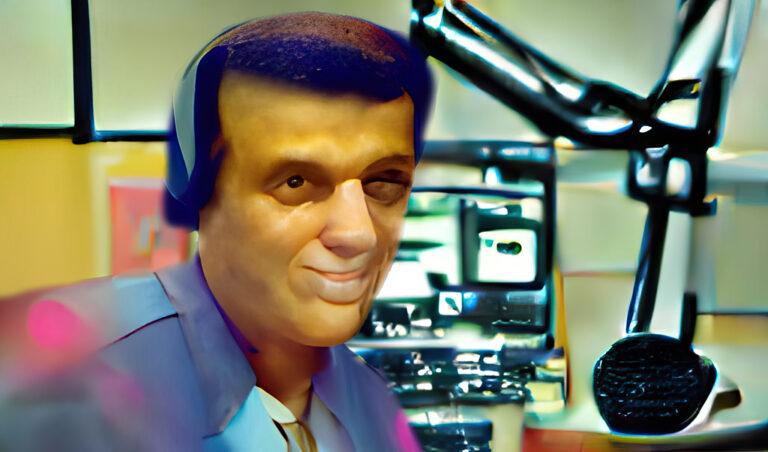Meet Tarot, a man with a command of the magical arts and a knack for using them to sniff out evildoers. Just one word of caution: most of his adventures are missing.
Sometimes it seems that almost every other conversation about cult classic British TV shows becomes a conversation about missing episodes of those TV shows; even a much-loved, globally obsessed-over franchise like Doctor Who isn’t immune to the fact that U.K. broadcasters, prior to the advent of the home video market in the early 1980s, often didn’t see a future for shows that were very much products of their time. Videotape was an expensive medium in the 1960s and 1970s; some shows were lucky enough to have a commercial afterlife in other countries and were transferred from video to film. Others were deemed unlikely to have any such commercially viable future, and the tapes were erased and reused.
A perfect example of a show that has suffered particularly badly from this practice is the delightfully time-stamped early ’70s supernatural kids’ show Ace Of Wands, produced by Thames Television. Created by Trevor Preston, who had earned a solid reputation as a writer on such shows as The Incredible Adventures of Professor Branestawm and a late ’60s adaptation of The Lion, The Witch, And The Wardrobe, Ace Of Wands follows the adventures of a young stage magician named Tarot, whose magic confounds audiences…and helps him catch criminals and, occasionally, evil practitioners of magic during his downtime.

Though it later became practically expected that every genre series rolled out by ITV or its various regional affiliates in the 1970s or ’80s was branded by the British entertainment press as “ITV’s answer to Doctor Who”, there is something endearingly Who-ish about Ace Of Wands. Tarot’s origins and backstory are clouded in mystery, the strength or limitations of his powers are unknown, and he has two young helpers – Lulli and Sam in the show’s first two seasons, and Mikki and Chas in the third season. In each case, Tarot seems to have a psychic connection to his female sidekick, while his male sidekick is more rough-and-ready, fully prepared to throw a punch or two if Tarot is in trouble.
Oh, and Tarot has an Owl named Ozymandias, played to perfection by an actual owl named Fred. (Ace Of Wands was a particularly lucky break for Fred, who, like many performing owls, finds it hard to land plum roles.) Ozymandias is occasionally part of Tarot’s stage show, but sometimes he plays a part in Tarot’s life of fighting evil as well.

None of this is to claim that Ace Of Wands is simply Doctor Who by another name, however. The show is a wonderful snapshot of the trippy, dandy, right-at-the-beginning-of-glam-rock Britain of the early ’70s. The trippiness of the 1960s looms large over the series’ costume choices, its cars, and its settings. It’s a Britain out of another time, where Decimal Day hasn’t quite happened yet, where some settings and characters seem more at home in the 19th century than the 20th, and where a magician with an owl is a welcome sight to the downtrodden. It’s also a Britain where Andy Bown of Status Quo fame could crank out a crazily memorable theme song to go with the show’s psychedelic opening credits.
Video and Article Image Courtesy of 11db11.
Ace Of Wands is a truly unique show, and those with an appreciation for magic as a performing art will be delights to see Ali Bongo’s name in the closing credits as the series’ “magic adviser”.
But even a magician with that kind of pedigree can’t conjure up the first two seasons of Ace Of Wands – they’re gone. None of the episodes featuring Lulli and Sam still exist. Thames Television management saw very little commercial future for Ace Of Wands, and the master videotapes for the first two seasons were wiped to make room for future productions. Network, curators of fine U.K. TV DVD sets galore, managed to release the third season on DVD, along with a thicker booklet than anyone probably expects from a DVD these days, giving insights into the creation of the series and various roads not taken. (Hint: Tarot wasn’t always named Tarot.) There’s also DVD-ROM content, including surviving copies of some of the missing episodes’ scripts, but…not all of them. There are some Ace Of Wands stories forever lost to time.
Also included are one episode each of the later Thames children’s anthology series Shadows and Dramarama, because in those two episodes – one aired in 1975 and one in 1984 (!!) – Trevor Preston tried to revive, away from the trappings of Ace Of Wands, Tarot’s most malevolent nemesis, Mr. Stabs. The Shadows episode, from 1975, is an intriguing glimpse into a performance that no longer exists in its original Ace Of Wands context, whereas the Dramarama episode, which recasts Mr. Stabs, isn’t quite as effective.

The third season is no slouch, however – in the right nostalgic, trippy frame of mind, it’s hugely entertaining, and not a bad starting point, since Tarot is meeting his two new helpers for the first time, right along with the viewer. It’s as good a point as any for those unfamiliar with the show’s premise to jump aboard. (And it’s still available on DVD, either directly from Network or from numerous online vendors, including Amazon.) Also included is a lovingly crafted making-of documentary, divided into three “episodes”, reuniting all of the cast members (except, sadly, for Fred the Owl) and Trevor Preston to discuss the show’s origins and its fairly substantial fan following in the early 1970s.
Ace Of Wands’ theme song tells us it’s a story without end, and yet what we’re left with is a story with no beginning – and yet the show is strangely compelling enough to stand the test of time despite that.





+ There are no comments
Add yours